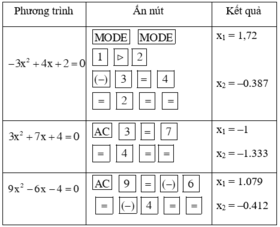Hãy nhập câu hỏi của bạn vào đây, nếu là tài khoản VIP, bạn sẽ được ưu tiên trả lời.

`#3107.101107`
a,
\(\text{A = }\left\{x\in R\text{ | }\left(2x-x^2\right)\left(3x-2\right)=0\right\}\)
`<=> (2x - x^2)(3x - 2) = 0`
`<=>`\(\left[{}\begin{matrix}2x-x^2=0\\3x-2=0\end{matrix}\right.\)
`<=>`\(\left[{}\begin{matrix}x\left(2-x\right)=0\\3x=2\end{matrix}\right.\)
`<=>`\(\left[{}\begin{matrix}x=0\\2-x=0\\x=\dfrac{2}{3}\end{matrix}\right.\)
`<=>`\(\left[{}\begin{matrix}x=0\\x=2\\x=\dfrac{2}{3}\end{matrix}\right.\)
Vậy, `A = {0; 2; 2/3}`
b,
\(\text{B = }\left\{x\in R\text{ | }2x^3-3x^2-5x=0\right\}\)
`<=> 2x^3 - 3x^2 - 5x = 0`
`<=> x(2x^2 - 3x - 5) = 0`
`<=>`\(\left[{}\begin{matrix}x=0\\2x^2-3x-5=0\end{matrix}\right.\)
`<=>`\(\left[{}\begin{matrix}x=0\\2x^2-2x+5x-5=0\end{matrix}\right.\)
`<=>`\(\left[{}\begin{matrix}x=0\\\left(2x^2-2x\right)+\left(5x-5\right)=0\end{matrix}\right.\)
`<=>`\(\left[{}\begin{matrix}x=0\\2x\left(x-1\right)+5\left(x-1\right)=0\end{matrix}\right.\)
`<=>`\(\left[{}\begin{matrix}x=0\\\left(2x+5\right)\left(x-1\right)=0\end{matrix}\right.\)
`<=>`\(\left[{}\begin{matrix}x=0\\2x+5=0\\x-1=0\end{matrix}\right.\)
`<=>`\(\left[{}\begin{matrix}x=0\\x=-\dfrac{5}{2}\\x=1\end{matrix}\right.\)
Vậy, `B = {-5/2; 0; 1}.`
c,
\(\text{C = }\left\{x\in Z\text{ | }2x^2-75x-77=0\right\}\)
`<=> 2x^2 - 75x - 77 = 0`
`<=> 2x^2 - 2x + 77x - 77 = 0`
`<=> (2x^2 - 2x) + (77x - 77) = 0`
`<=> 2x(x - 1) + 77(x - 1) = 0`
`<=> (2x + 77)(x - 1) = 0`
`<=>`\(\left[{}\begin{matrix}2x+77=0\\x-1=0\end{matrix}\right.\)
`<=>`\(\left[{}\begin{matrix}2x=-77\\x=1\end{matrix}\right.\)
`<=>`\(\left[{}\begin{matrix}x=-\dfrac{77}{2}\\x=1\end{matrix}\right.\)
Vậy, `C = {-77/2; 1}`
d,
\(\text{D = }\left\{x\in R\text{ | }\left(x^2-x-2\right)\left(x^2-9\right)=0\right\}\)
`<=> (x^2 - x - 2)(x^2 - 9) = 0`
`<=>`\(\left[{}\begin{matrix}x^2-x-2=0\\x^2-9=0\end{matrix}\right.\)
`<=>`\(\left[{}\begin{matrix}x^2+x-2x-2=0\\x^2=9\end{matrix}\right.\)
`<=>`\(\left[{}\begin{matrix}\left(x^2+x\right)-\left(2x+2\right)=0\\x^2=\left(\pm3\right)^2\end{matrix}\right.\)
`<=>`\(\left[{}\begin{matrix}x\left(x+1\right)-2\left(x+1\right)=0\\x=\pm3\end{matrix}\right.\)
`<=>`\(\left[{}\begin{matrix}\left(x-2\right)\left(x+1\right)=0\\x=\pm3\end{matrix}\right.\)
`<=>`\(\left[{}\begin{matrix}x-2=0\\x+1=0\\x=\pm3\end{matrix}\right.\)
`<=>`\(\left[{}\begin{matrix}x=2\\x=-1\\x=\pm3\end{matrix}\right.\)
Vậy, `D = {-1; -3; 2; 3}.`

b: A là tập con của B
A là tập con của C
A là tập con của D và ngược lại

Câu 2:
\(\left(A\cup B\right)\cap C=A\cap C=[1;+\infty)\cap\left(0;4\right)=[1;4)\)
Tập này có 3 phần tử nguyên

Lời giải:
$E=\left\{-5;-4;-3;-2;-1;0;1;2;3;4;5\right\}$
$A=\left\{1; -4\right\}$
$B=\left\{-1; 2\right\}$
Do đó:
$A\cup B = \left\{-4; -1; 1;2\right\}$
$C_E(A\cup B)=\left\{-5;-3;-2; 0;3;4;5\right\}$
$A\cap B = \varnothing$
$C_E(A\cap B)=E$

\(a,2x^2+x=0\)
\(x\left(2x+1\right)=0\)
\(\left[{}\begin{matrix}x=0\\2x=-1\end{matrix}\right.\)
\(\left[{}\begin{matrix}x=0\\x=-\frac{1}{2}\end{matrix}\right.\)
\(b,-0,4x^2+1,2x=0\)
\(x\left[\left(0,4x\right)-\left(1,2\right)\right]=0\)
\(\left[{}\begin{matrix}x=0\\0,4x-1,2=0\end{matrix}\right.\)
\(\left[{}\begin{matrix}x=0\\0,4x=1,2\end{matrix}\right.\)
\(\left[{}\begin{matrix}x=0\\x=\frac{3}{10}\end{matrix}\right.\)
\(c,7x^2-5x=0\)
\(x\left(7x-5\right)=0\)
\(\left[{}\begin{matrix}x=0\\7x-5=0\end{matrix}\right.\)
\(\left[{}\begin{matrix}x=0\\x=\frac{5}{7}\end{matrix}\right.\)
\(e,-2x^2-11x=0\)
\(x\left(2x+11\right)=0\)
\(\left[{}\begin{matrix}x=0\\2x+11=0\end{matrix}\right.\)
\(\left[{}\begin{matrix}x=0\\x=\frac{11}{2}\end{matrix}\right.\)
ko có bạn thì mình chết từ lâu rồi cảm ơn bạn nhiều